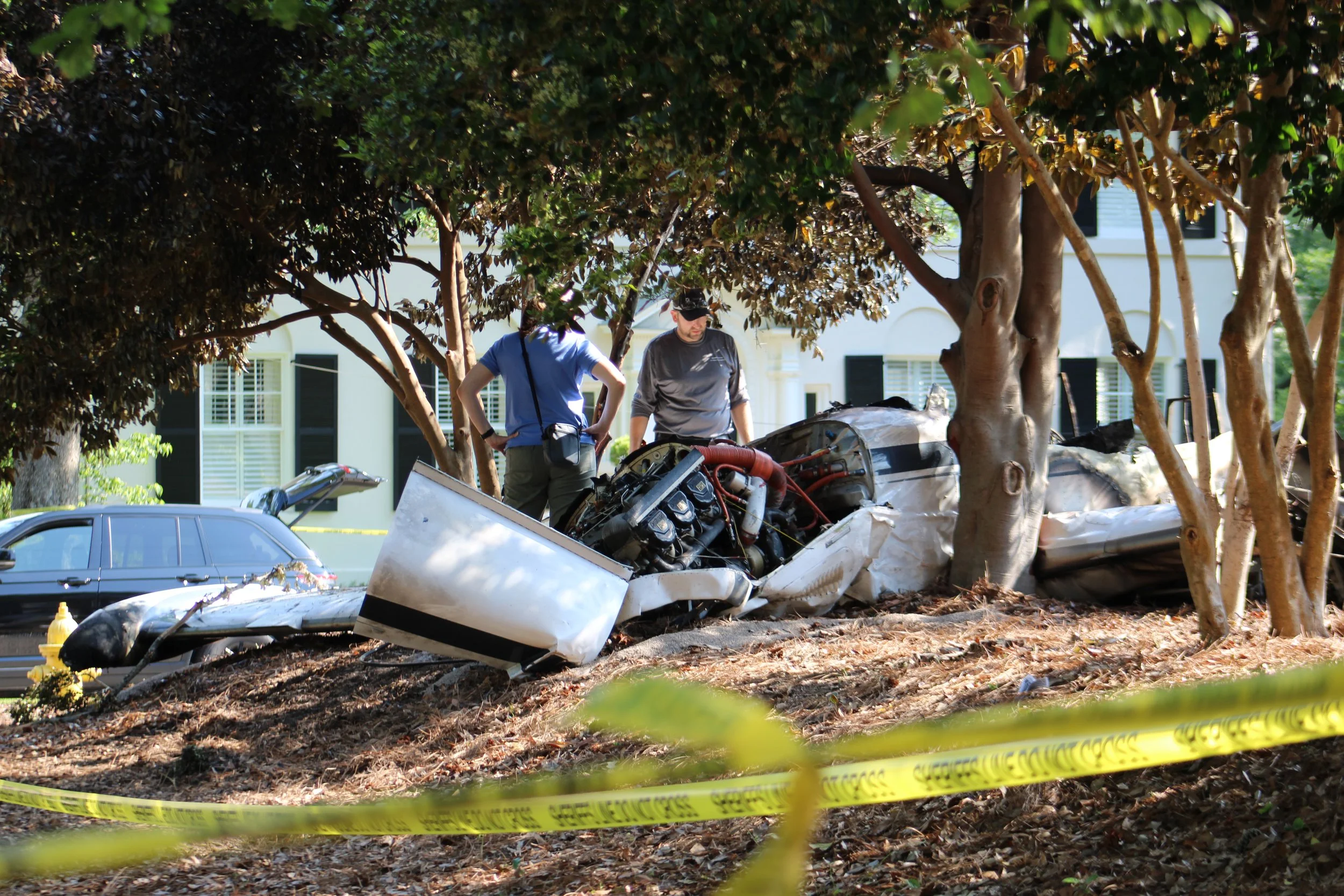Trafficking: A community response
This article is a follow-up to the story “The worst of Masters traffic” by CM Wahl, posted online here and in the April 24 print edition on page 1.
Panelists (from left to right) Anita Ivy, Jared Williams, Kari Viola-Brooke, and Terry Core discussed human trafficking in Augusta. Photo by Rakiyah Lenon.
By CM Wahl | News editor
Engage AU recently held a community partner panel discussion entitled “A Conversation on Human Trafficking in Our Community,” sponsored by the Office of Institutional Access, Success, and Belonging, Volunteer Services and Community Engagement, and Pamplin’s Department of Social Sciences.
Panelists included Melissa Bemiller, professor at AU; Kari Viola-Brooke, executive director of Child Enrichment Inc.; Anita Ivy, special agent in the Georgia Bureau of Investigation; Jared Williams, district attorney in the Augusta Judicial Circuit; and Terry Core, investigator in the Richmond County Sheriff’s Office.
Bemiller opened the discussion by prefacing the topic with a warning that trafficking could be an “extremely uncomfortable” subject, but that audience members should not withhold questions because the room was a safe space.
“Get comfortable with being uncomfortable,” said Bemiller, “because that’s how we grow.”
The word “trafficking” is typically equated with sex trafficking, but there are also other forms, such as labor or organ trafficking.
Bemiller said, “[Trafficking] involves the recruitment, transportation, harboring, or receipt of individuals through force, coercion or deception for the purpose of exploitation.”
Sex trafficking adds to that definition the “obtaining, patronizing or soliciting of a person for the purpose of a commercial sex act.” In Georgia, what constitutes as trafficking is the buying or selling of a person, or if a minor is involved in any type of sexual servitude.
According to the state’s Trafficking in Persons Report in 2023, for offenders to be convicted, it must be proven that they committed the “act” of trafficking with the “means” of force, fraud, deception or coercion and the “purpose” of benefiting commercially from their victims’ sex acts.
“And who are the traffickers?” asked Bemiller. “Anybody.”
She stated that traffickers can look like anyone and be from any demographic. It is their act of coercion that differentiates their crime between trafficking and prostitution.
Core, who works in the Crimes Against Children Unit, said many of the local trafficking victims and survivors are runaways. Viola-Brooke added that they also come from the foster system.
Ivy, who works in the GBI’s Human Exploitation and Trafficking division, stated that it can be difficult to spot or identify victims without context.
“Oftentimes, victims don’t even identify as victims,” she said.
Ivy said victims are usually monitored by someone and may look to a third party before speaking. They may dress more provocatively, wear more expensive things, or carry two cell phones.
Williams added that their change in behavior was an important factor.
“If you are noticing that your loved one is acting differently,” he said, “or less open with you, if you have that type of communication with them, then that’s noteworthy.”
Viola-Brooke said that many traffickers utilize the numerous hotels in Augusta to conduct their business. She said it is cause for concern when children are seen walking around those areas alone and hotels should be held accountable for their actions.
Kari Viola-Brooke of Child Enrichment Inc answered audience questions on local trafficking. Photo by Rakiyah Lenon.
“We need to care more about children than the money the hotel is getting for selling that room,” said Viola-Brooke.
Core added that if a child has access to the internet and is being secretive or won’t share their passwords, that can also be an indicator that something is wrong.
“Right now, we have a huge increase in what’s called ‘sextortion,’” he said, “which is a precursor to this trafficking. We have that. If your child is on the internet, they’re going to be talked to by an adult. It’s going to happen.”
Core said that Georgia is sixth in the nation for trafficking. Richmond County has identified more child sex trafficking victims than anywhere else in the state due to a high number of referrals to the right agencies.
“In Georgia, there’s over 50 child advocacy centers,” said Viola-Brooke. “Almost every judicial circuit or county is served by [one].”
Viola-Brooke said she believes it is not that Augusta has more trafficking than other cities, but that the county’s success is a testament to the work local people are doing through collaboration.
“We have done such a great job educating our community on how to respond to this,” she said, “that our numbers are better than anywhere else.”
Bemiller clarified that when awareness and training is increased, an increase in reporting is expected. She stated this was good because it meant more protection for childen.
Williams said that the results being seen were due to an “active, concerted effort to educate” and in this community, people are noticing when children are going unsupervised.
“We spend a lot of time in the schools,” he said, “and the reason is, we know that those who don’t mean the best for our children have access to them, so we need to make sure we have access as well.”
Augusta district attorney Jared Williams spoke on community awareness. Photo by Rakiyah Lenon.
Williams described the heavy grip gang-related trafficking had on a young man he met who had developed a fierce loyalty to the wrong people. Williams stated it was “disheartening” to see and that it was important to reach out to kids often and early.
“We have to recognize that even if you don’t have kids,” he said, “or the child impacted is not your kid, it is still your problem. There’s still a community response needed.”
Contact CM Wahl at cwahl@augusta.edu






